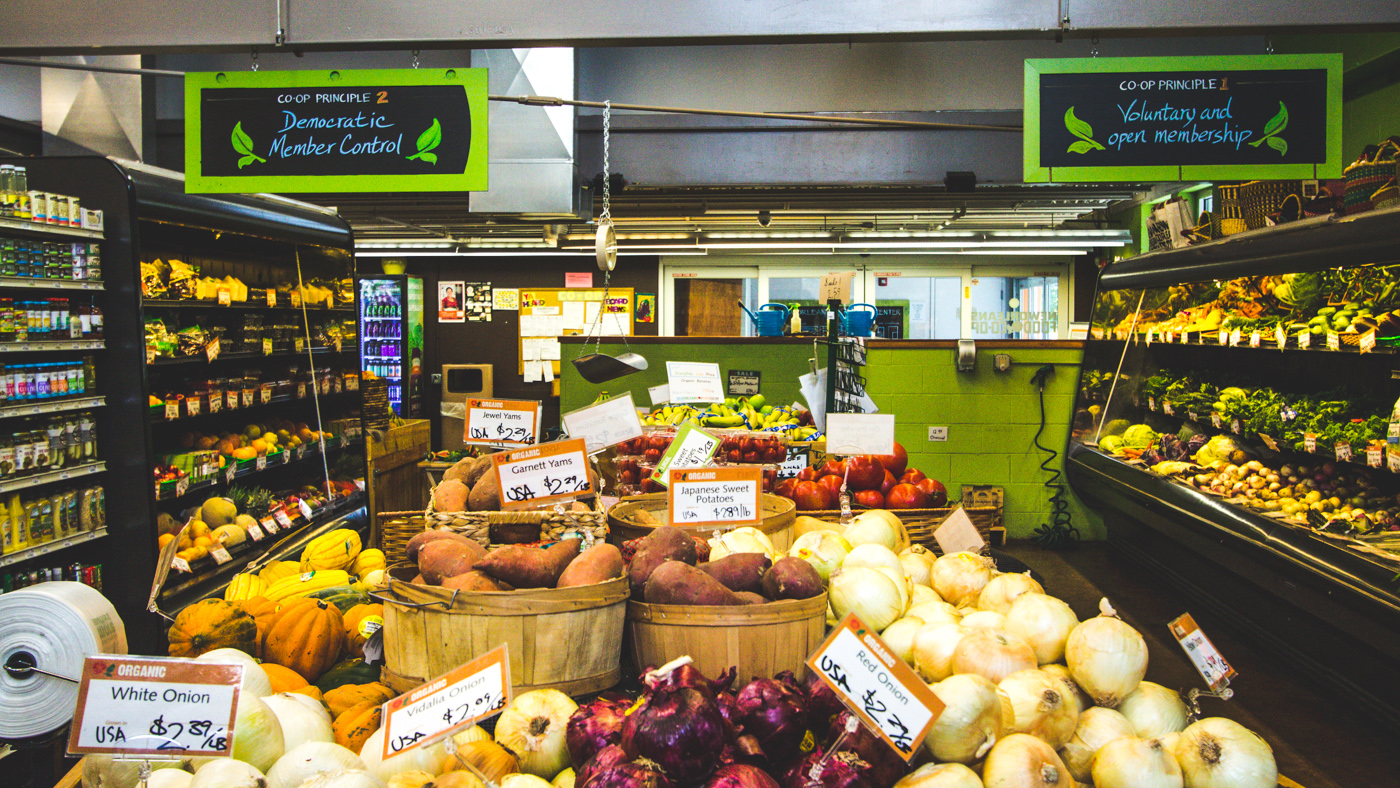The New Orleans Food Co-op is a member-owned cooperative. We are 100% owned by people in this community, people just like you. Member-ownership is an investment in the cooperative system, local farms and businesses, and sustainable production methods. As a democratic organization, each owner invests one share and receives one vote. Unlike publicly traded corporations that allocate more voting power to larger investors, co-ops equalize the playing field by allowing one share and one vote per Member-owner. This means that we always operate in the best interest of our community. Your investment is vital to ensuring your co-op’s success. Everyone is welcome to join! Like most Co-ops, we abide by the 7 Cooperative Principles: Co-operatives are voluntary organisations, open to all persons able to use their services and willing to accept the responsibilities of membership, without gender, social, racial, political or religious discrimination. Co-operatives are democratic organisations controlled by their members, who actively participate in setting their policies and making decisions. Men and women serving as elected representatives are accountable to the membership. In primary co-operatives members have equal voting rights (one member, one vote) and co-operatives at other levels are also organised in a democratic manner.xt. Members contribute equitably to, and democratically control, the capital of their co-operative. At least part of that capital is usually the common property of the co-operative. Members usually receive limited compensation, if any, on capital subscribed as a condition of membership. Members allocate surpluses for any or all of the following purposes: developing their co-operative, possibly by setting up reserves, part of which at least would be indivisible; benefiting members in proportion to their transactions with the co-operative; and supporting other activities approved by the membership. Co-operatives are autonomous, self-help organisations controlled by their members. If they enter into agreements with other organisations, including governments, or raise capital from external sources, they do so on terms that ensure democratic control by their members and maintain their co-operative autonomy. Co-operatives provide education and training for their members, elected representatives, managers, and employees so they can contribute effectively to the development of their co-operatives. They inform the general public – particularly young people and opinion leaders – about the nature and benefits of co-operation. Co-operatives serve their members most effectively and strengthen the co-operative movement by working together through local, national, regional and international structures. Co-operatives work for the sustainable development of their communities through policies approved by their members. Co-operatives are based on the values of self-help, self-responsibility, democracy,equality, equity and solidarity. In the tradition of their founders, co-operative members believe in the ethical values of honesty, openness, social responsibility and caring for others. For more information visit the International Cooperative Alliance.
What is a co-op?
Cooperative Principals
Cooperative Values

